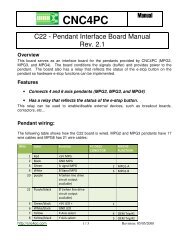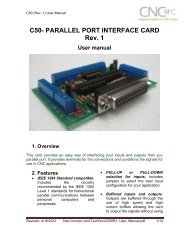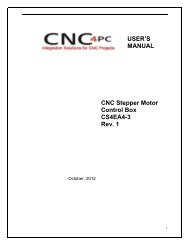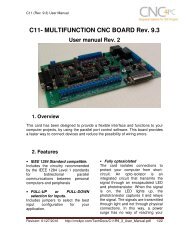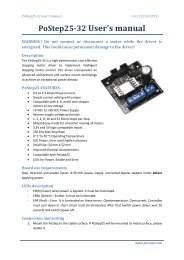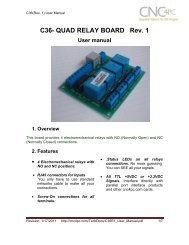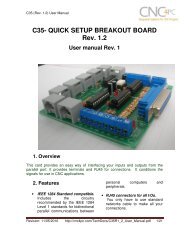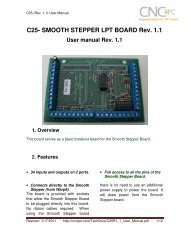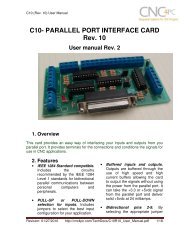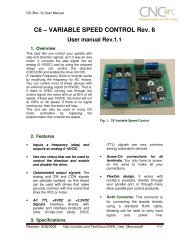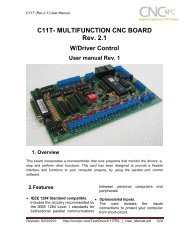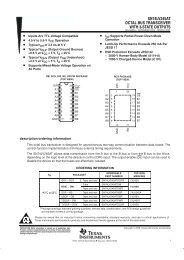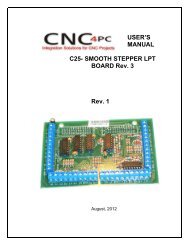You also want an ePaper? Increase the reach of your titles
YUMPU automatically turns print PDFs into web optimized ePapers that Google loves.
No. 14-5123 Huff, et al. v. Spaw Page 15Turning to the question of whether circumstances justified her expectation, the SupremeCourt has long held that society is prepared to recognize as legitimate an expectation of privacyin statements that a person made under circumstances similar to Bertha Huff’s. Katz, 389 U.S. at359 (finding a Fourth Amendment violation in the attachment of an eavesdropping device to apublic telephone booth). Therefore, Bertha’s Huff’s expectation of privacy from interceptionwas justified under the circumstances.Having found that Bertha Huff exhibited an expectation of privacy in her statements thatwas reasonable under the circumstances, we reverse the district court’s holding that she did notengage in oral communications. This does not necessarily mean that Spaw is liable, becauseTitle III imposes liability only when a person “intentionally” uses a “device” to intercept oralcommunications. We leave to the district court to consider on remand whether any of Spaw’sactions, including (1) answering the phone, (2) turning up the volume, (3) transcribing notes, and(4) making an electronic recording, constituted an “intentional use of a device” to interceptBertha Huff’s oral communications. Additionally, if James Huff had noticed that his phone wasconnected to an outside line two minutes before he ended the call, and Bertha Huff understoodthis, then Bertha would not be protected by Title III with respect to those final minutes of herconversation.CSpaw relies on Williams v. State, 507 P.2d. 1339 (Okla. Crim. App. 1973), to argue that,even if some of the conversation that she overheard constituted oral communication, she is notliable because her conduct does not qualify as “interception” under Title III. Appellee’s Br. at23–25. In Williams, a motel manager answered a phone call from a motel room and heard a“very loud disturbance in the room including cussing fighting and calling each other names.” Id.at 1340 (internal quotation marks omitted). The manager made a tape recording of theconversation, which was introduced as evidence at the defendant’s trial for the murder of theroom’s occupant. Ibid. The defendant sought to exclude the recording as an unlawfulinterception under Title III, and the Williams court held that “the defendant has not shown thatthe tape recording in question was the result of an intercept . . . [because] there was no tap on theline or interference with the normal telephone lines.” Id. at 1341 (internal quotation marks



